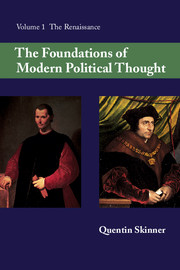Book contents
- Frontmatter
- Contents
- Preface
- Acknowledgements
- Notes on the text
- PART ONE THE ORIGINS OF THE RENAISSANCE
- PART TWO THE ITALIAN RENAISSANCE
- PART THREE THE NORTHERN RENAISSANCE
- 7 The diffusion of humanist scholarship
- 8 The reception of humanist political thought
- 9 The humanist critique of humanism
- Bibliography of primary sources
- Bibliography of secondary sources
- Index
7 - The diffusion of humanist scholarship
Published online by Cambridge University Press: 05 June 2012
- Frontmatter
- Contents
- Preface
- Acknowledgements
- Notes on the text
- PART ONE THE ORIGINS OF THE RENAISSANCE
- PART TWO THE ITALIAN RENAISSANCE
- PART THREE THE NORTHERN RENAISSANCE
- 7 The diffusion of humanist scholarship
- 8 The reception of humanist political thought
- 9 The humanist critique of humanism
- Bibliography of primary sources
- Bibliography of secondary sources
- Index
Summary
THE MIGRATION OF HUMANISTS
Rabelais tells us that when the young Pantagruel first went to study at the University of Paris, he received a stern letter from his father Gargantua urging him to devote himself with as much energy as possible to a life of scholarship. Gargantua's main purpose in writing was to give an account of the somewhat heroic course of instruction he wished his son to pursue. But he also took the opportunity to offer some appropriately sententious remarks about the great improvements in ‘sound learning’ which had been achieved in France in the course of his own lifetime. When he was young, ‘the times were still dark, and mankind was perpetually reminded of the miseries and disasters wrought by those Goths who had destroyed all sound scholarship’. But now there was light and enlightenment everywhere. The invention of ‘the elegant and accurate art of printing’ had made it possible to disseminate the new learning so widely that ‘the whole world’ had become ‘full of learned men, of very erudite tutors, and of most extensive libraries’. And the new learning itself had involved a restoration of ‘every method of teaching’, a revival of ‘the study of languages’ and a splendid rapprochement with the unsurpassed civilisation of the ancient world.
The moment at which this new learning first made its appearance at the University of Paris can be dated with some precision.
- Type
- Chapter
- Information
- The Foundations of Modern Political Thought , pp. 193 - 212Publisher: Cambridge University PressPrint publication year: 1978



